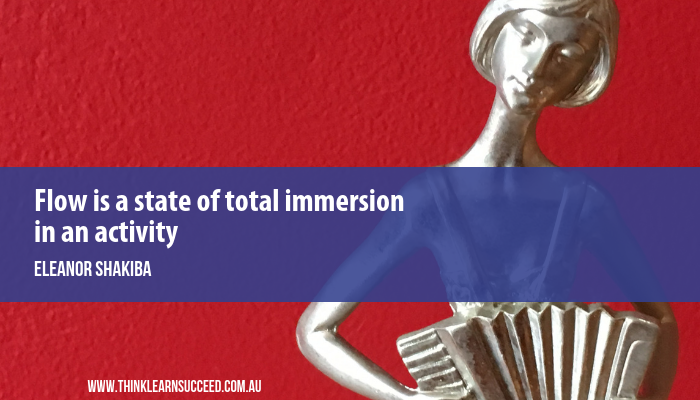 Athletes call it being in the zone. Artists call it being inspired. Jazz musicians call it being in the groove. In positive psychology, it’s called a flow state. When you’re in flow, you are fully absorbed and focused. Your attention is on the task at hand and everything else fades out of awareness. And it’s highly likely you’re performing at your peak.
Athletes call it being in the zone. Artists call it being inspired. Jazz musicians call it being in the groove. In positive psychology, it’s called a flow state. When you’re in flow, you are fully absorbed and focused. Your attention is on the task at hand and everything else fades out of awareness. And it’s highly likely you’re performing at your peak.
In his book Flow, psychologist Mihály Csíkszentmihályi describes the flow state as an “optimal state of consciousness where we feel our best and perform our best.” Anyone can access a flow state. There are eight factors that can help you do it.

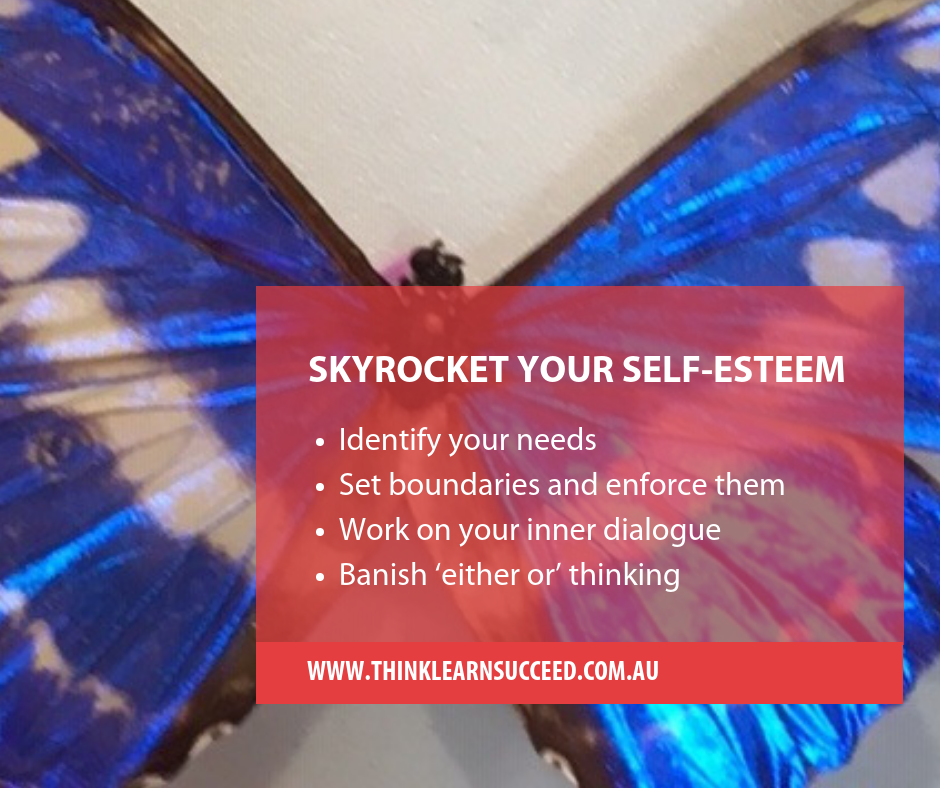
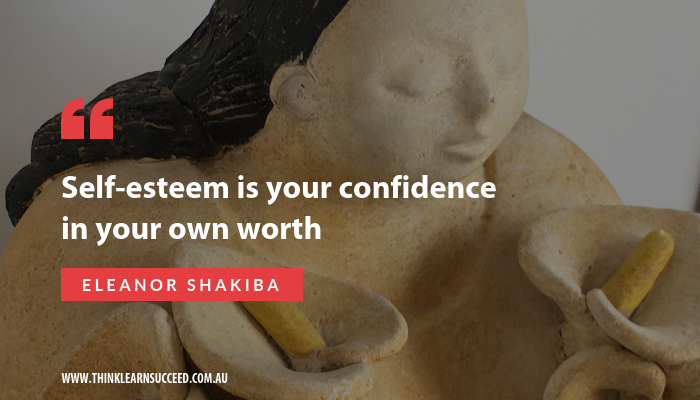 Do you treat yourself with compassion and nurturing care? Or are you too hard on yourself? Your answer links back to your self-esteem
Do you treat yourself with compassion and nurturing care? Or are you too hard on yourself? Your answer links back to your self-esteem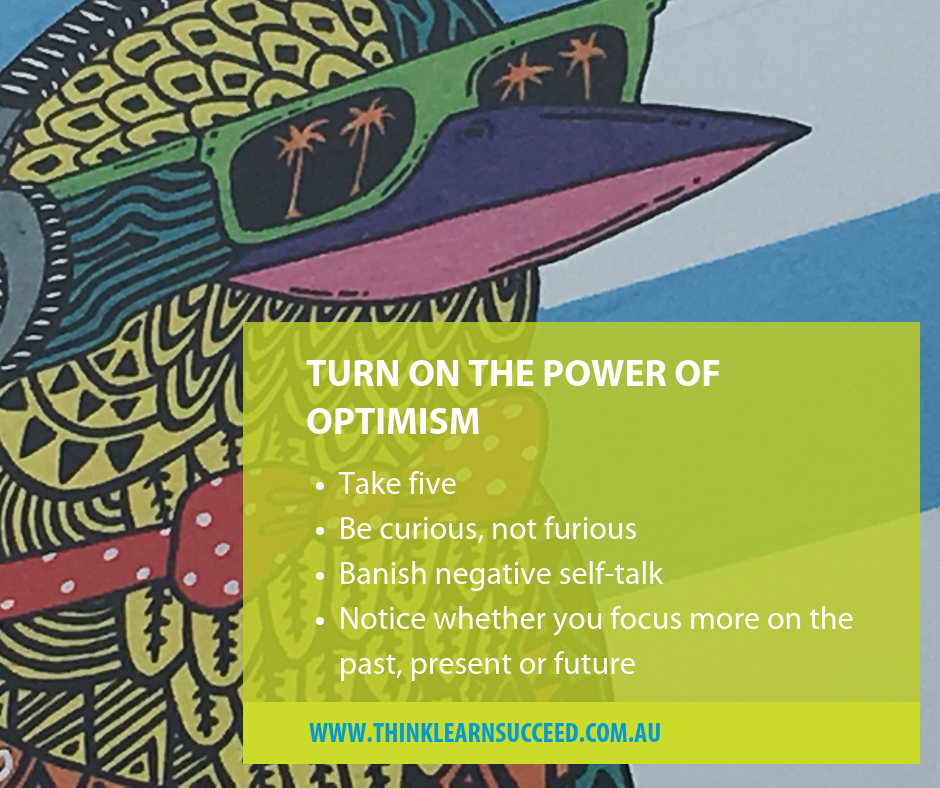
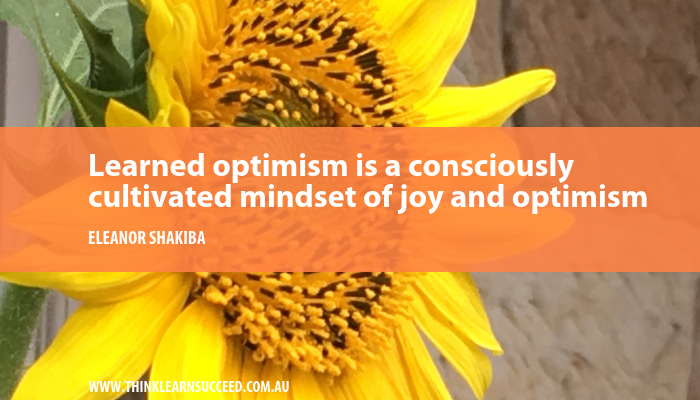 Do you see the glass as half-empty or half-full? Are you a pessimist or an optimist? It’s a classic debate. Optimism is a ‘feeling of hopefulness and confidence about the future or the success of something.’ It’s the belief that things will turn out okay, even when you have no evidence to back it up. Compared to pessimists, people who have optimistic mindsets handle change more resiliently, report higher levels of general well-being and solve problems more creatively.
Do you see the glass as half-empty or half-full? Are you a pessimist or an optimist? It’s a classic debate. Optimism is a ‘feeling of hopefulness and confidence about the future or the success of something.’ It’s the belief that things will turn out okay, even when you have no evidence to back it up. Compared to pessimists, people who have optimistic mindsets handle change more resiliently, report higher levels of general well-being and solve problems more creatively. 70% of high achievers live in persistent fear of people finding out that they “don’t have a clue” what they’re doing. Despite evidence to the contrary, such as hard-earned degrees or a proven track record, they still attribute their achievements to luck, fate or simply good timing.
70% of high achievers live in persistent fear of people finding out that they “don’t have a clue” what they’re doing. Despite evidence to the contrary, such as hard-earned degrees or a proven track record, they still attribute their achievements to luck, fate or simply good timing.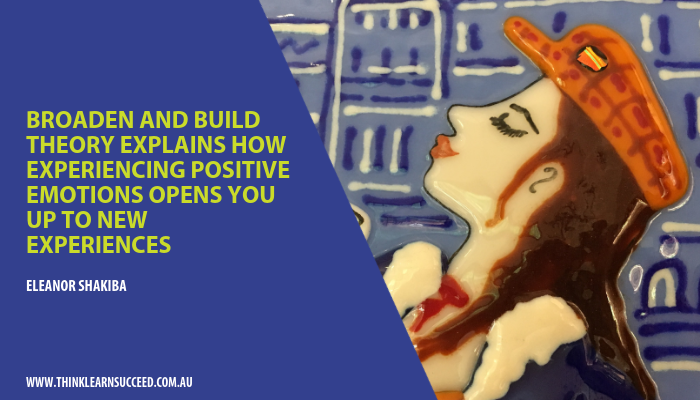 With ‘positive thinking’ being constantly touted in pop psychology, do you find yourself feeling guilty about your negative emotions? Don’t be. Your perceived ‘negative’ or uncomfortable feelings are just as important as the positive ones in helping you evaluate your experiences and make sense out of life’s complexity.
With ‘positive thinking’ being constantly touted in pop psychology, do you find yourself feeling guilty about your negative emotions? Don’t be. Your perceived ‘negative’ or uncomfortable feelings are just as important as the positive ones in helping you evaluate your experiences and make sense out of life’s complexity.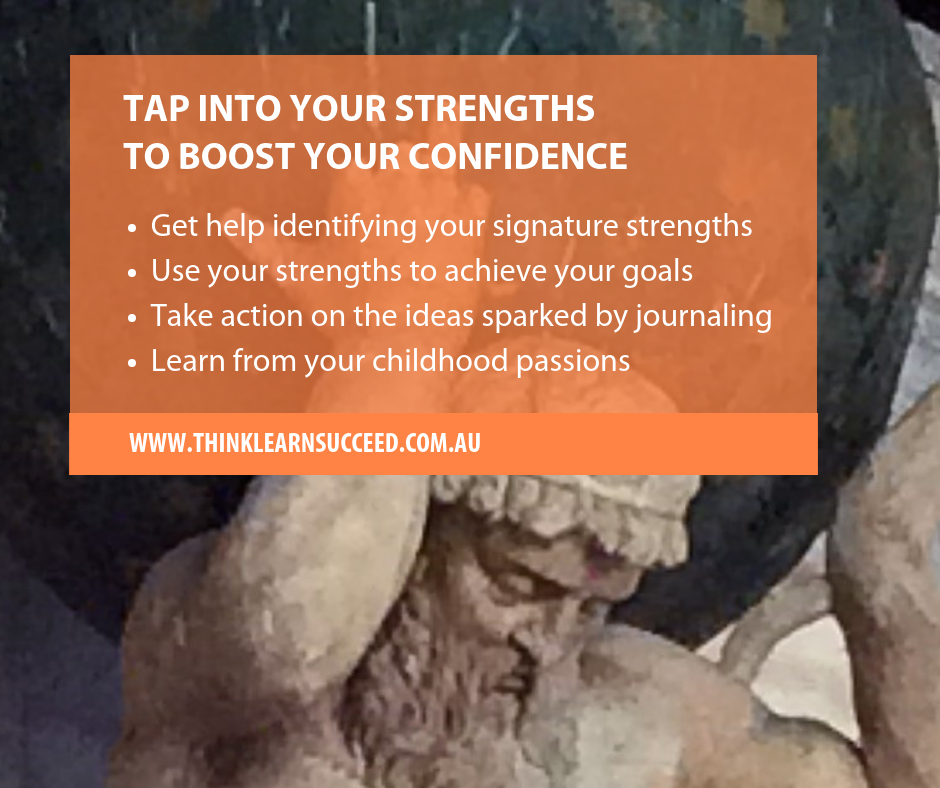 Knowing what your signature strengths are, can boost your well-being – and it’s boosted even further when you regularly utilise those strengths. Leaders and managers are now regularly using character strengths exercises to help employees become more engaged, productive and happy.
Knowing what your signature strengths are, can boost your well-being – and it’s boosted even further when you regularly utilise those strengths. Leaders and managers are now regularly using character strengths exercises to help employees become more engaged, productive and happy.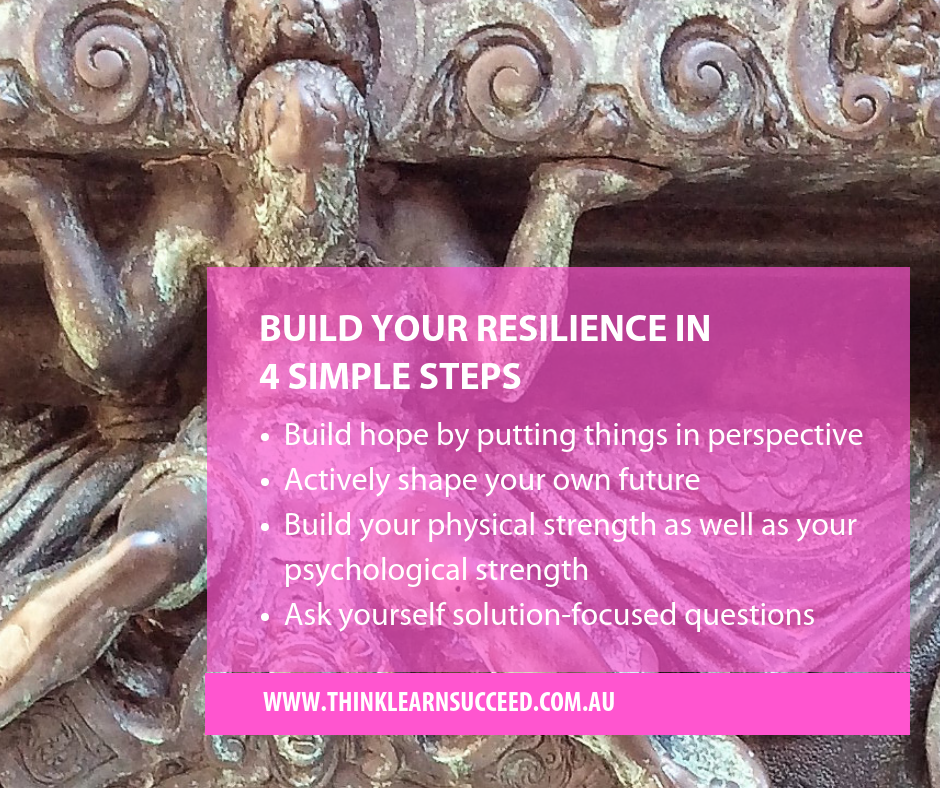
 Do you think of negotiation as a stress-inducing activity, or do you see it as fun? If you answered fun, you’re operating from the same mindset as a savvy negotiator. Savvy negotiators take pleasure in the art of communicating with their counterparts. They enjoy the to-and-fro of concession exchange. They’re also playful and creative in both their thinking and communication patterns. They enter what positive psychologists call a flow state. Being in this state vastly increases their negotiation effectiveness.
Do you think of negotiation as a stress-inducing activity, or do you see it as fun? If you answered fun, you’re operating from the same mindset as a savvy negotiator. Savvy negotiators take pleasure in the art of communicating with their counterparts. They enjoy the to-and-fro of concession exchange. They’re also playful and creative in both their thinking and communication patterns. They enter what positive psychologists call a flow state. Being in this state vastly increases their negotiation effectiveness.